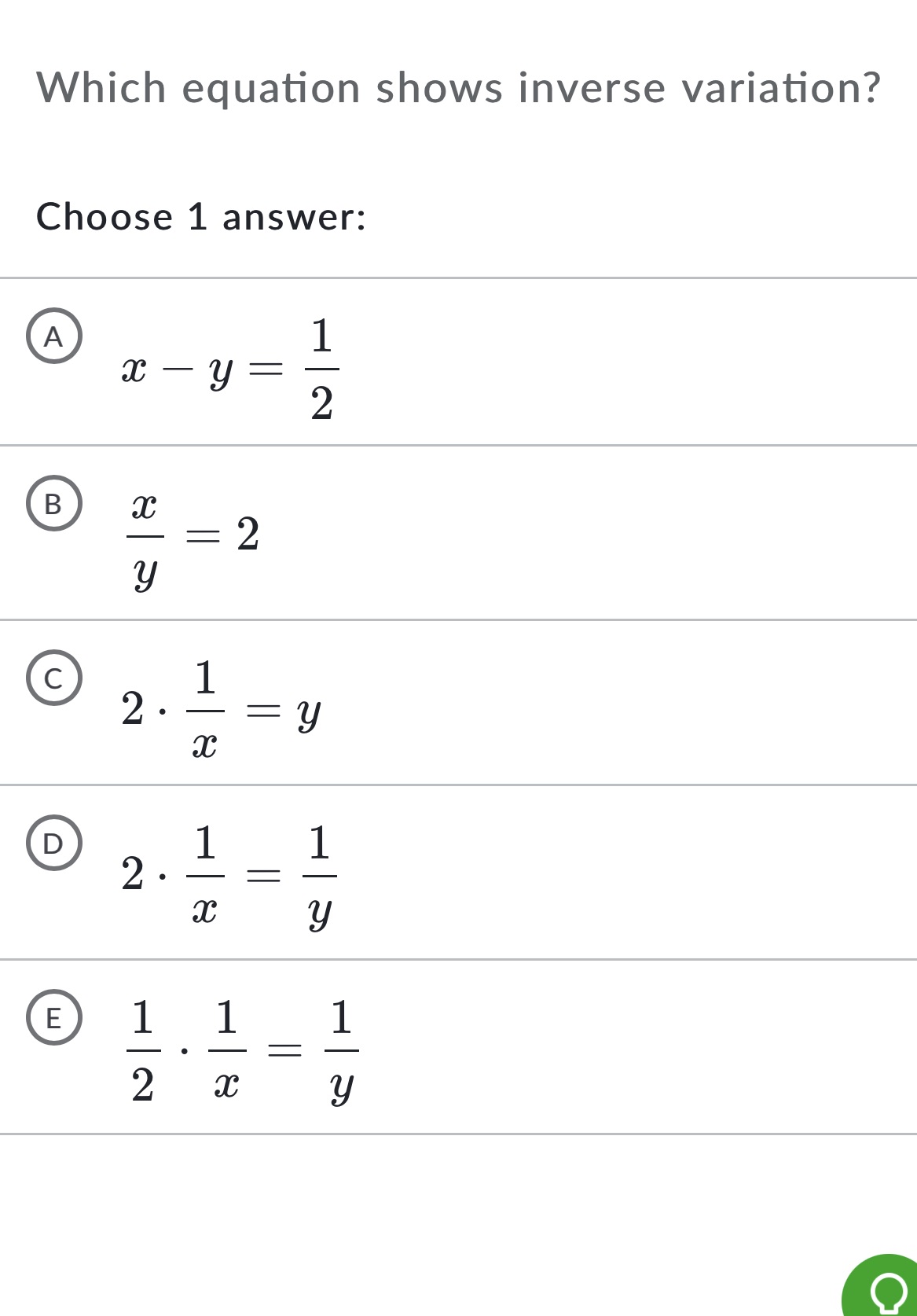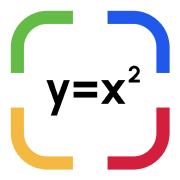Published
- 2 min read

Question: Which equation shows inverse variation? Choose 1 answer: A) \( x - y = \frac{1}{2} \) B) \(…
Which equation shows inverse variation?
Choose 1 answer:
A) \( x - y = \frac{1}{2} \)
B) \( \frac{x}{y} = 2 \)
C) \( 2 \cdot \frac{1}{x} = y \)
D) \( 2 \cdot \frac{1}{x} = \frac{1}{y} \)
E) \( \frac{1}{2} \cdot \frac{1}{x} = \frac{1}{y} \)
Solution
Inverse variation means that \( y \) varies inversely with \( x \), following the equation \[ y = \frac{k}{x} & \] where \( k \) is a constant. Let’s analyze each option to identify which one matches this form. Option A: \( x - y = \frac{1}{2} \) This is a linear equation and does not represent an inverse variation. Option B: \( \frac{x}{y} = 2 \) Rearranging the equation gives \( y = \frac{x}{2} \), which is also a linear relationship. Option C: \( 2 \cdot \frac{1}{x} = y \) Rewriting the equation results in \( y = \frac{2}{x} \), which matches the inverse variation form \( y = \frac{k}{x} \). Option D: \( 2 \cdot \frac{1}{x} = \frac{1}{y} \) This implies \( \frac{1}{y} = \frac{2}{x} \), leading to \( y = \frac{x}{2} \), a linear relationship. Option E: \( \frac{1}{2} \cdot \frac{1}{x} = \frac{1}{y} \) This translates to \( \frac{1}{y} = \frac{1}{2x} \), resulting in \( y = 2x \), which is linear. Therefore, the correct equation that shows inverse variation is: C) \(2 \cdot \frac{1}{x} = y\)

